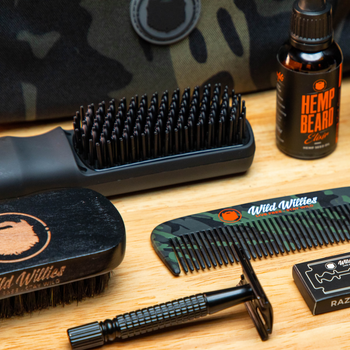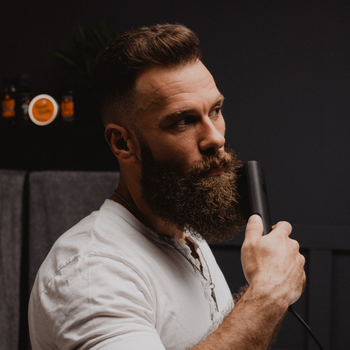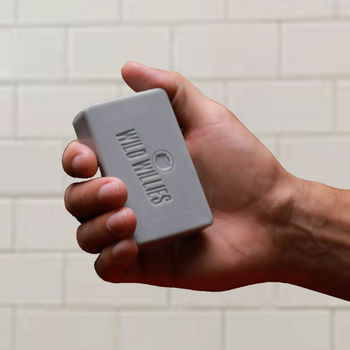Itchy beards are the worst! The best remedy is to keep your beard and skin moisturized and clean, but what if that’s not enough?
Your itchy beard may be caused by dry skin, allergic reactions, or even skin disease in rare situations.
In this blog post, we will give you a 7 step guide on how to get rid of an itchy beard.
Table of Contents
- Follow these 7 steps to get rid of your dreaded beard itch:
- 1 Identify the cause of the itchiness
- 2 Treat the underlying cause
- 3 Wash and condition your beard
- 4 Rinse your beard
- 5 Use beard oil
- 6 Avoid scratching your beard
- 7 Allow the hair to grow
- Why does beard itch occur?
- What is laser hair removal?
- Where can I find products to combat my beard itch?
Follow these 7 steps to get rid of your dreaded beard itch:
- Identify the Cause
- Treat Your Beard
- Wash & Condition Your Beard
- Rinse Your Beard
- Use Beard Oil
- Don’t Scratch Your Beard
- Give it Time to Grow
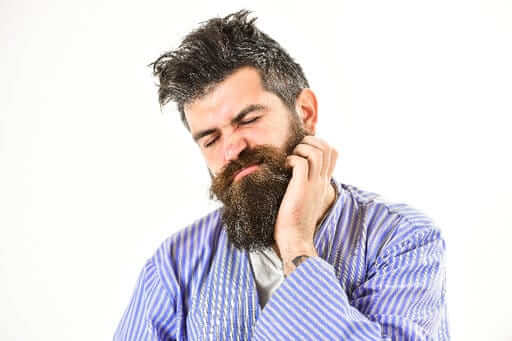
1 Identify the cause of the itchiness
The first step in getting rid of an itchy beard is identifying the cause of the itchiness. There are many different reasons why your beard might be itchy, and each one will require a different solution.
Some of the most common causes of itchy beards include:
• Dry skin - a condition that occurs when the skin does not produce enough oil or sweat. This can cause the skin to feel dry, tight, itchy, and flaky.
• Allergies - occur when the immune system overreacts to a harmless substance, such as pollen, pet dander, or dust mites. This can cause the skin to become itchy, red, and swollen.
• Eczema - a skin condition that causes the skin to become itchy, red, and swollen. It can occur anywhere on the body but is most common on the face, hands, and feet.
• Psoriasis - a long-term skin condition that can cause inflammation and red, itchy patches of skin.
• Ingrown hairs - hairs that have been cut or pulled out of the skin, but instead of exiting the hair follicles, they curl back around and start growing in the opposite direction. An ingrown hair can cause the skin to become red, swollen, and itchy.
Once you have identified the cause of the itchiness, you can begin to treat it accordingly.
2 Treat the underlying cause
The most effective way to stop beard itch is to treat the underlying cause of itchiness. This might include using a moisturizer to treat dry skin, an antihistamine to combat allergies, or a prescription cream to treat eczema or psoriasis.
If you are experiencing ingrown beard hairs, you can exfoliate the skin regularly or use a topical antibiotic to help clear them up.

3 Wash and condition your beard
The next step to reducing beard itch is to wash and condition it regularly. This will help remove any dirt, dead skin cells, or debris that may be causing the itchiness and help keep the beard moisturized.
Each week be sure to use a beard wash that is designed for facial hair, and avoid using any products with harsh chemicals like sulfates.
When you are done washing it, be sure to apply a beard conditioner to the beard, comb it through evenly, leave it on for five minutes, and then rinse it out.
This will help keep the beard hair hydrated and help prevent itchiness.
Once you have finished washing and conditioning your beard, be sure to rinse it out thoroughly. This will help to remove any leftover shampoo or conditioner.
Be sure to use cool water. Cool water will help close the pores and reduce the risk of irritation. Hot water can dry out your skin and strip necessary oils.
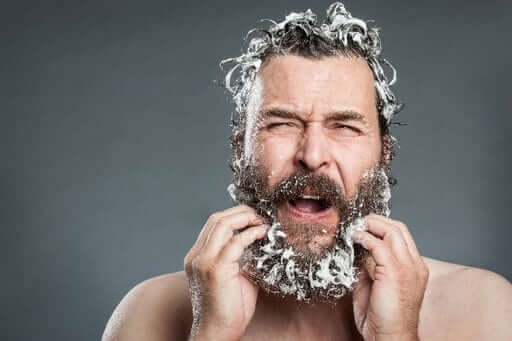
4 Rinse your beard
Do you wash your beard daily? If so, and your skin is dry, you can try rinsing your beard every other day instead of washing it.
Rinsing your beard will prevent soaps from removing sebum which is a natural oil your skin produces to keep it moisturized.

5 Use beard oil
When you are done washing it, be sure to apply beard oil to the beard and use a beard brush to distribute the oil evenly.
Beard oil is a type of moisturizer that is specifically designed for beards. It is made up of a blend of natural oils, such as jojoba oil, argan oil, and tea tree oil, that help to nourish and hydrate the skin and beard.
It will also keep your beard soft and manageable.
Beard oil can help prevent itchiness, tame wild hairs, and give the beard a healthy shine. It is important to note that not all beard oils are created equal, so be sure to do your research before purchasing one.
Here are 21 options for you: Find The Best Beard Oil: 21 Fantastic Beard Oils To Use
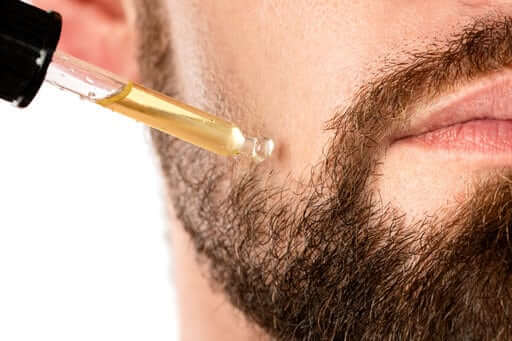
6 Avoid scratching your beard
It can be difficult to resist the temptation to scratch an extremely itchy beard, but scratching can actually make the problem worse. Scratching can cause the skin to become raw and irritated, which will only make it itchier.
If you are experiencing a lot of itchiness, you can apply a cold compress to the beard to help soothe the irritation.
7 Allow the hair to grow
If you are experiencing itchiness, one of the best ways to get relief is to allow the hair to grow. The longer the hair is, the less opportunity there is for it to become irritated and itchy.
Be sure to keep the beard trimmed and groomed, but avoid shaving it all off. Shaving can cause more irritation due to the sharp edge that is left when the hair follicle is shaved off, plus it will take longer for the hair to grow back in.
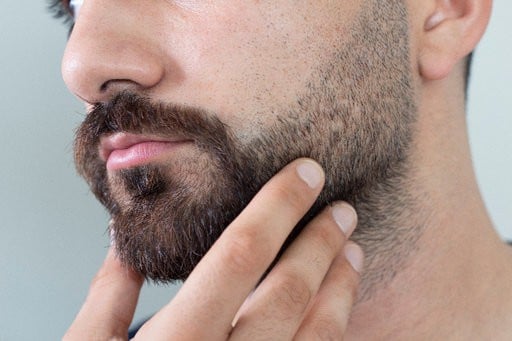
Why does beard itch occur?
There are a few different reasons why your beard might start to itch. The most common reason is that your skin is dry, and the itchy feeling is your body's way of telling you that it needs moisture.
Another common reason for beard itch is irritation from products, such as shampoo or soap.
Finally, another possibility is that you're allergic to the ingredients in your beard care products or even to your own beard!
If you're experiencing regular bouts of beard itch, it's a good idea to check in with a dermatologist to see if there might be an underlying allergy causing the problem.
In severe cases where medications do not work, or there is no treatment, a dermatologist might even suggest laser hair removal.
What is laser hair removal?
Laser hair removal is a cosmetic procedure that uses a laser to remove unwanted hair growth. The laser emits a beam of light that is absorbed by the pigment in the hair follicle. This causes the hair to heat up and destroy the follicle, which prevents the hair from growing back.
Laser hair removal is a relatively safe and effective procedure, and it can be used to remove hair from any part of the body.
Where can I find products to combat my beard itch?
Now that you know how to get rid of an itchy beard, it's time to put this information into action!
The best way to do that is by using the Wild Willies Rebel Set. This kit contains all of the essential products you need to keep your beard healthy and itch-free.
Try out our kit today and say goodbye to those pesky beard problems once and for all!
